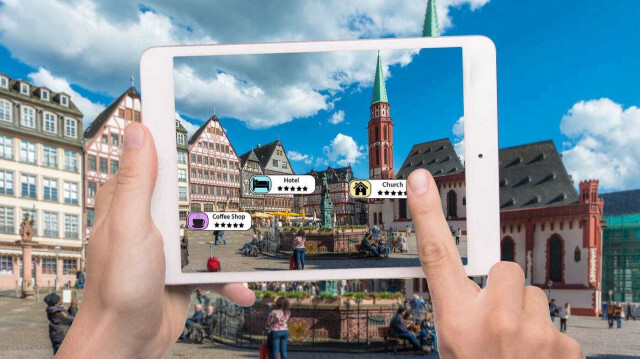
Artificial intelligence tech making an impact on all aspects of the tourism industry, according to sector insiders
As global tourism resurges after the major slowdown caused by the COVID-19 pandemic, the industry is gearing up by investing more in artificial intelligence technologies that experts believe can streamline various critical processes.
Across various industries, AI has the potential to unlock between $2 trillion and $4 trillion in annual value, according to a report by consulting group McKinsey Research.
It forecasts the travel industry to grow at an average of nearly 6% a year over the next five to seven years.
For the industry, the prospect of saving time, costs and more is an appealing idea that various actors are keen to capitalize on at the earliest.
RateHawk, an online booking platform for hotels, tickets, car rentals and airport transfers, is already relying on AI for quick consolidation and aggregation of information, according to Ivan Yuschenka, the company's business development director.
“AI is widely used from two points in our company, one from the supply side and another from the support side,” she told Anadolu at a recent event in Berlin.
On the supply side, he explained, AI helps them put together data and information from more than 220 suppliers “really fast and in the most efficient manner.”
“On the support side, AI helps us localize the communication with lots of parts of the world by quickly translating all communications by emails, and as well as capturing text from recorded audio calls and figuring out the red flags on bad communication between the hotelier and our customer,” Yuschenka said.
“It saves a lot of time. The major processes where we use AI become twice or even five times faster, and it also reduces the costs needed to maintain the same processes or operations.”
- Automation changing tourism industry
Recent advances in AI tech, such as the meteoric rise of platforms like ChatGPT, are pushing the boundaries of what can be accomplished, particularly in terms of better managing customer communications, a key part of the tourism and hospitality sector.
“AI is helping us save time and increase revenue … One specific area is interactions between guests and hotels, which have become a lot faster,” Ricky Acedo of hospitality management system Cloudbeds told Anadolu.
Wilhem Rabsztyn of Bookboost, a platform which consolidates and optimizes guest data, pointed out AI tech's utility in “finding patterns in customer data.”
“It helps in understanding the behavior of your business guests or leisure guests, or the behavior of guests on certain corporate rate plans or guests that book at certain times ahead of their stay,” he told Anadolu.
“AI helps us in finding those patterns and gives new insights in your customer data. Secondly, on the communication side, AI helps us in automating communication, in automating FAQ processes, all the recurring conversations.”
Michael Mitterhofer, CEO at Re:Guest, a digital software provider for hotels, asserted that automation is changing the entire industry.
His company's AI-based chatbot is widely used across Germany and Austria, reducing the need for extra staff to deal with basic customer inquiries and scheduling.
“For hotels that face difficulty in finding employees for sales, the chatbot can take over the work, and save time and money,” he told Anadolu.

